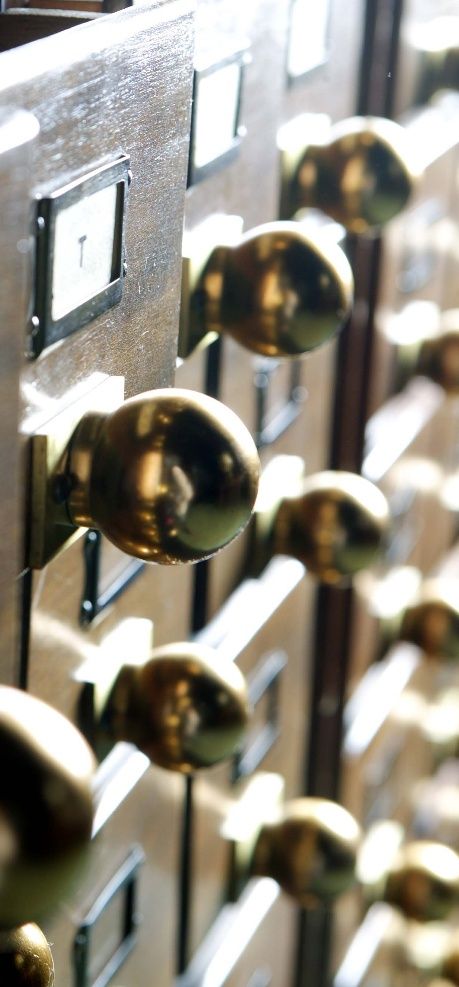
Notaries are members of a single state body attached to the Ministry of Justice and under control and inspection by the College of Notaries and the General Directorate of Registries and Notarial Offices.
The number of notaries in Catalonia is regulated in the framework of the notarial demarcation established jointly by the Catalan Government’s Ministry of Justice and the State Ministry of Justice. Every five years, if considered necessary, and always every ten years, the demarcation is revised to adjust it to the real needs of the population centres and the volume of activity generated, in order to provide the best service to the citizens.
There are 34 notarial districts - 17 in Barcelona province, 6 in Girona province, 6 in Lleida province and 5 in Tarragona province. Each of them has a Representative and a Deputy Representative, who support the Governing Board in the exercise of its functions in the area.
The College is governed by the General Meeting, formed by all the active notaries in Catalonia, the Governing Board, with mandates for a four-year term, and the Dean, also directly elected.
Access to the profession and remuneration
Access to this body is by competitive examination, held approximately every two years at national level.
Having obtained the qualification, the notaries, depending on the vacancies and the marks obtained, can take possession of the place assigned to them.
The remuneration is regulated by the scale of fees fixed by the Government, that is to say, it is the Ministry of Justice that sets the prices for notarial documents.
Notaries and the country
Notaries enjoy, thanks to their position, remarkable social standing and local prestige, acquired continuously through the careful drafting of documents and the impartial advice that the notaries give every day to the citizens in the place and at the key moment when they authorise legal acts and business of the greatest personal and patrimonial importance.
This local prestige has become clear in a special way in Catalonia, where society in general has great dynamism and vitality and where the Notaries have contributed decisively to the preservation and autonomous development of private law. Since the 13th and 14th centuries when Roman Law was introduced by means of the notarial practice and the richest Maritime Law in the Mediterranean was created, and until the 20th century, the participation of notaries in preparing the 1960 Compilation of Catalan Law and the process of renewal of Civil Law begun in 1984, culminating in the drafting of the Civil Code of Catalonia, has been really significant, passing through periods when the country lacked its own legislative institutions and the Notaries have had to adapt to reality by changing the ancient laws from time to time.
On the other hand, until well into the 19th century, Catalan notaries kept alive the use of the Catalan language in legal documentation together with Latin and, from the 18th century, Spanish. And now they are contributing to its recovery in accordance with the wish of the grantors.
Finally, notaries have often played an important part in public life in Catalonia, above all in the legal field, but also in the political ambit, in economics and in culture. In this sense, it is sufficient to mention the personalities of Félix M Falguera, Antoni Par, Ramon Faus Esteve, Enric Gabarró, Raimon Noguera, Lluís Figa Faura, Josep M. Puig Salellas and Lluís Roca-Sastre Muncunill, all of them former Deans.
Reality today
Today, the College of Notaries, and also the Notarial Profession, is a modern institution and open to all the sociological, institutional, legal and technological changes involved in the change of century. Thus, notaries
- have wanted to adapt to new needs in current contracting and become guarantors of the rights of consumers and the strictest compliance with legality, both in bank contracting and in business sales of dwellings
- have moved with goodwill into the new territorial structure of power which results from the State of the Autonomies, collaborating loyally with the Catalan Government in all the fields in which they have been required
- have adapted to constant legislative changes in civil, mercantile and taxation matters for the benefit of security in legal business and flexibility in business transactions
- have taken on the use of new technology in the profession, not only with the advance of computerisation in notarial offices, but also by means of the electronic signature and telematic methods, in order to assist the citizens and public authorities in compliance with the multiplicity of processes and administrative and tax obligations demanded by current legislation in force,
but always without forgetting the special attention needed for situations of people more in need of protection and legal care, such as, among others, the disabled and people in situations of vulnerability or dependence.
Promotion of the study of Law and history
In the framework of its cultural activity, the College publishes two magazines. One, an annual publication, is Historic studies and archives of registers, which with the support of the Noguera Foundation, publishes studies on the history of law, art, the economy and customs, carried out on the basis of notarial documentation. The other, La notaria, a quarterly, is the oldest legal magazine in Spain. Since the start of its latest stage, in 2010, it contains articles of opinion, topicality, interviews, studies, reports and legislation of interest for the exercise of the notarial function.










